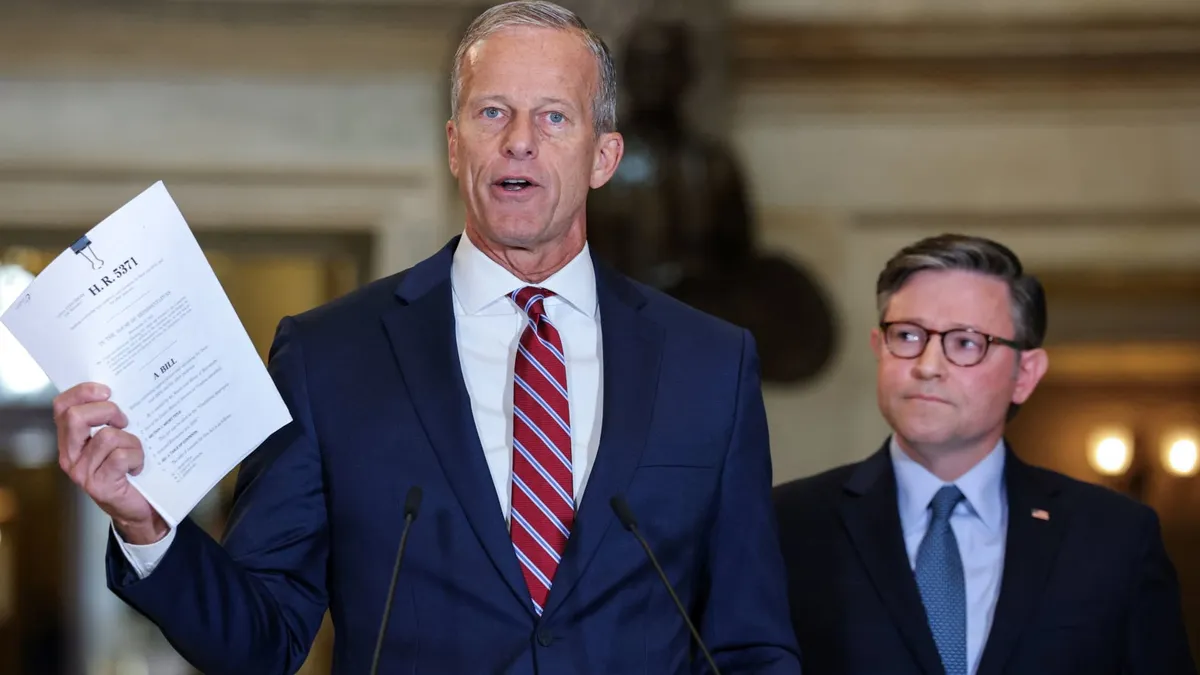
The ongoing U.S. government shutdown is on track to become the longest federal funding lapse in the nation's history. As it approaches its 36th day on Wednesday, it will surpass the previous record set in early 2019. This unprecedented shutdown is primarily fueled by a significant funding dispute that has yet to be resolved, leading to continued uncertainty for millions of Americans.
Efforts to break the legislative deadlock have been met with repeated failures. The latest attempt to pass a Republican-backed stopgap measure in Congress was blocked in the Senate for the 14th time on Tuesday. Currently, there are no further votes scheduled on this short-term continuing resolution, nor on an alternative proposal offered by Democrats, which seeks to increase funding for health care and other critical priorities.
It is noteworthy that both of the longest government shutdowns in U.S. history occurred during the administration of former President Donald Trump. The current funding dispute centers around enhanced tax credits for insurance premiums under the Affordable Care Act, which are set to expire at the end of the year. This expiration threatens to dramatically increase health care costs for millions of Americans.
Democrats have firmly declined to support any clean stopgap resolution that does not address the critical issue of these subsidies. Meanwhile, Republicans have shown reluctance to engage in negotiations while the government remains shut down. With Republicans holding a narrow majority in the Senate, they require Democratic votes to surpass the chamber's 60-vote threshold needed for legislative action.
Despite the ongoing impasse, some Republicans expressed cautious optimism regarding a potential resolution to the shutdown. Senator Mike Rounds from South Dakota indicated to reporters that he believes Democrats may become more amenable to reaching a deal after the shutdown extends to a record length and following the completion of Tuesday's elections. Rounds suggested that Democrats could leverage the situation to convey to their constituents that they are actively opposing the President. “I think that's a major part of what this is about,” he stated.
Similarly, Senator Markwayne Mullin from Oklahoma conveyed confidence that the shutdown could conclude in the coming days. However, some Democratic leaders remain skeptical about the prospect of a swift compromise. Senator Richard Blumenthal from Connecticut acknowledged a slight indication of progress but emphasized that there is currently no immediate solution in sight. He expressed concerns regarding the Republicans’ commitment to ensuring health care insurance guarantees for Americans.
In response to the Republican optimism, Senator Elizabeth Warren from Massachusetts urged that if Republicans genuinely seek to resolve the situation, they must come to the negotiating table. “That would be nice,” she remarked, adding, “so far, they have come to the table to negotiate exactly zero times.” This highlights the critical need for bipartisan dialogue to resolve the ongoing shutdown and address the pressing issues at hand.